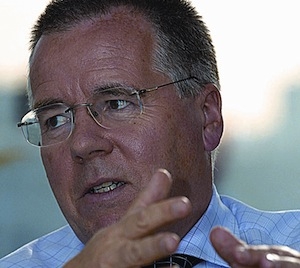I’ve been spending a fair amount of time recently considering the subject of investment due diligence. Last month an ex-colleague Chris Jones and I gave a talk on the subject at the AMPS (SIPP and SSAS providers) conference. In preparing for that talk we undertook some substantive research into the subject primarily in the context of due diligence on investments made within a SIPP wrapper.
The research was interesting. Even prior to A-Day in April 2006 which introduced fundamental changes to the tax treatment of SIPP investments providers had to monitor investments to ensure they met HMRC requirements in relation to “permitted” investments and to check that there were no significant barriers to the valuation or liquidity of the investments. Those checks became more onerous with the introduction of “taxable property”. Moreover from April 2007 the operation of SIPPs was regulated for the first time.
And that is where the problems really started. The detailed research is beyond the scope of this article but included a number of FCA initiatives such as the Policy statement 07/11 on the TCF implications for providers and distributors, the first thematic review of SIPPs in 2009, the consultative paper in 2012 on UCIS and the second thematic review findings also in 2012.
Later FCA activity included the third thematic review in 2013, the policy statement on UCIS in 2013 and the “Dear CEO” letter in 2014. In addition there were have been a number of relevant Pensions Ombudsmen determinations – some of which appear contrary to some Financial Ombudsmen decisions - along with various newsletters and other commentary from AMPs and of course more recently the Berkeley Burke and Carey Pensions cases and other “Dear CEO” letters.
Despite all of this just when SIPP providers assumed responsibility for “investment due diligence” remains a subject of discussion and debate. I remain inclined to the view that the watershed was around the end of 2012 following the second thematic review and the associated “private” FSA workshops with SIPP providers when investment due diligence featured for the first time.
Of course all of this is history but as we know history can shape the future and it is the future that really concerns me. In the last few days two further troubled SIPP Providers have been in the news – GPC SIPP entering into administration and Lifetime SIPP being declared in default by the FSCS – both of which will further reduce investor confidence in the SIPP market.
At the AMPs conference we posed a number of questions to the audience. Over 40% of the audience felt that providers should automatically be held responsible for fraudulent investments and scams which could have been avoided if “proper” due diligence had been undertaken.
That percentage halved if the customer had received an illicit direct benefit or was party to a pension liberation scheme. And over 80% of the audience supported a move to restricting the marketing of non-standard investments within SIPPs to HNWS and sophisticated investors in the same way as now applies to UCIS. Those findings seem to me provide the outline of a new regulatory framework for SIPPs which might help restore confidence in the industry.
One final observation. The Dear CEO letter in July 2014 which spelt out the FCA’s five key areas relevant to the investment due diligence process included the comment “Although our thematic review focussed on non-standard investments, it is important to note that guidance on due diligence applies to all investments”.
At a time when certain high profile investment funds have come under intense scrutiny I wonder if the due diligence undertaken by financial advisers and platform and SIPP providers on these funds will be subject to the same level of inquiry and review that has been accorded certain non-standard SIPP investments. Food for thought indeed...
John Moret is principal of MoretoSIPPs consultancy and one of the UK's most experienced SIPPs experts, commentators and speakers. He has worked for Suffolk Life and several other SIPPs providers.

